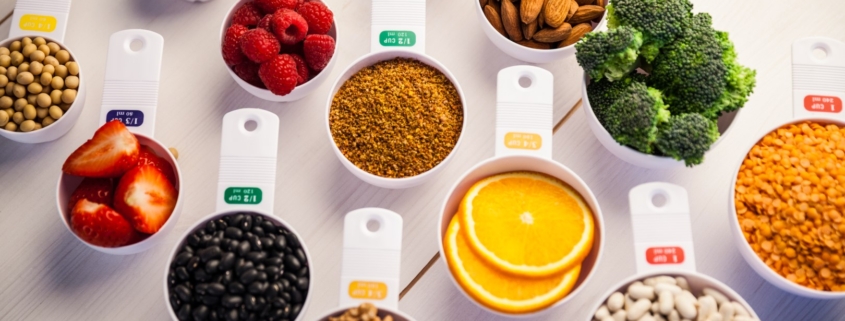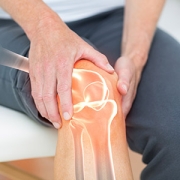Nutritional Tips for Optimal Recovery After Minimally Invasive Joint Replacement
Recovering from minimally invasive joint replacement surgery involves more than just rest and physical therapy. Your body needs the right nutrients to heal efficiently, reduce inflammation, and regain strength. At Gough Surgical in Scottsdale, Dr. Brandon Gough and his team emphasize the importance of nutrition as a key factor in a successful recovery after hip or knee replacement surgery. This article explores the essential nutrients and dietary habits that can help you heal faster and get back to an active lifestyle.
Why Nutrition Matters in Post-Surgery Recovery
Minimally invasive joint replacement surgery is designed to reduce tissue damage and promote quicker recovery times, but the body still undergoes stress during the procedure. After surgery, your body needs to repair tissues, rebuild muscle strength, and minimize inflammation. Proper nutrition supports these processes by providing the essential building blocks for healing and energy.
Eating a well-balanced diet rich in vitamins, minerals, and protein can help you:
- Boost your immune system to prevent infection
- Promote faster tissue repair and muscle recovery
- Reduce inflammation and swelling
- Maintain energy levels to stay active during rehabilitation
- Support bone and joint health for long-term recovery success
Protein: The Foundation of Healing
Protein is crucial for tissue repair, muscle maintenance, and overall recovery after joint replacement surgery. The amino acids found in protein-rich foods help rebuild tissues damaged during surgery and support the formation of new muscle. Additionally, protein aids in the production of collagen, which is essential for healthy joints and skin.
Best Sources of Protein
- Lean meats such as chicken, turkey, and fish
- Eggs which provide high-quality protein
- Legumes including beans, lentils, and chickpeas
- Dairy products like Greek yogurt, cottage cheese, and milk
- Plant-based proteins such as tofu, tempeh, and quinoa
Aim to include a source of protein in every meal to support muscle recovery and reduce the risk of muscle loss during periods of limited activity.
Vitamin C: Boosting Collagen and Immune Function
Vitamin C plays a critical role in collagen synthesis, which is vital for healing ligaments, tendons, and skin after joint surgery. Additionally, vitamin C is a powerful antioxidant that helps protect the body from infections and reduces inflammation. By incorporating foods rich in vitamin C into your post-surgery diet, you can accelerate the healing process and support your immune system during recovery.
Best Sources of Vitamin C
- Citrus fruits like oranges, grapefruits, and lemons
- Berries such as strawberries, blueberries, and raspberries
- Bell peppers which contain high levels of vitamin C
- Broccoli and Brussels sprouts
- Kiwi and pineapple
Vitamin C is easily incorporated into your meals through fresh fruit, smoothies, or as a healthy snack between meals.
Omega-3 Fatty Acids: Reducing Inflammation
Inflammation is a natural response to surgery, but controlling excessive inflammation is important for optimal healing. Omega-3 fatty acids are known for their anti-inflammatory properties, which can help reduce swelling and discomfort following joint replacement surgery. These healthy fats also support heart health, which is important as your body adjusts to increased activity levels during recovery.
Best Sources of Omega-3s
- Fatty fish such as salmon, mackerel, sardines, and tuna
- Chia seeds and flaxseeds
- Walnuts
- Fish oil supplements (consult with Dr. Gough before taking supplements)
Incorporating omega-3-rich foods into your diet can help manage inflammation and promote joint healing, making recovery more comfortable and efficient.
Calcium and Vitamin D: Supporting Bone Health
Calcium and vitamin D are vital for maintaining bone health, especially after joint replacement surgery. These nutrients work together to strengthen bones and support the integration of your joint implant, ensuring long-term success. While calcium helps build and maintain strong bones, vitamin D enhances calcium absorption and supports immune function.
Best Sources of Calcium
- Dairy products such as milk, yogurt, and cheese
- Leafy greens including spinach, kale, and bok choy
- Almonds and tofu
- Fortified foods like plant-based milk, cereals, and orange juice
Best Sources of Vitamin D
- Fatty fish such as salmon and tuna
- Fortified foods like dairy products and cereals
- Sunlight (exposure to sunlight triggers the production of vitamin D in the skin)
Consider incorporating calcium-rich foods into your meals and spending some time outdoors each day to ensure you get enough vitamin D, which is crucial for bone healing.
Hydration: A Key to Faster Recovery
Staying hydrated is essential for overall health and recovery after surgery. Water helps transport nutrients to cells, flush out toxins, and prevent dehydration. Proper hydration can also reduce post-surgery constipation, which is a common side effect of anesthesia and pain medications.
Hydration Tips
- Drink plenty of water throughout the day
- Incorporate hydrating foods such as cucumbers, watermelon, and leafy greens
- Limit caffeinated beverages that can cause dehydration
- Opt for herbal teas or water infused with lemon or cucumber for flavor
By staying well-hydrated, you support your body’s ability to heal and maintain energy during recovery.
Anti-Inflammatory Foods: Helping Your Body Heal
In addition to omega-3 fatty acids, other anti-inflammatory foods can help reduce swelling and promote healing after surgery. These foods contain antioxidants and compounds that can help the body manage inflammation naturally, improving overall recovery.
Best Anti-Inflammatory Foods
- Turmeric which contains curcumin, a powerful anti-inflammatory compound
- Ginger which helps reduce swelling and supports digestion
- Garlic known for its anti-inflammatory and immune-boosting properties
- Berries rich in antioxidants that help combat inflammation
- Olive oil a source of healthy fats that reduce inflammation
Incorporating these foods into your diet can support faster recovery and make the healing process more comfortable.
Foods to Avoid During Recovery
While it’s important to focus on nutrient-dense foods, there are certain foods that can hinder your recovery process. Highly processed foods, sugary snacks, and foods high in saturated fats can contribute to inflammation and delay healing.
Foods to Avoid
- Sugary snacks and drinks that spike blood sugar levels and increase inflammation
- Fried and processed foods that are high in unhealthy fats
- Alcohol which can interfere with medications and slow down the healing process
- Excessive salt which can contribute to water retention and increase swelling
By avoiding these foods, you can create an environment in your body that supports healing and reduces the risk of post-surgery complications.
Supporting Recovery with the Right Nutrition
At Gough Surgical, we believe that recovery from minimally invasive joint replacement surgery is a holistic process that includes proper nutrition. A balanced diet filled with protein, healthy fats, vitamins, and minerals can make all the difference in how quickly and comfortably you recover. By following these nutritional tips, you can support your body’s natural healing processes, reduce inflammation, and regain strength more effectively.
If you’re preparing for joint replacement surgery or are currently recovering, Dr. Brandon Gough and his team are here to guide you every step of the way. Contact us today to schedule a consultation and learn more about how proper nutrition and expert care can enhance your recovery.











